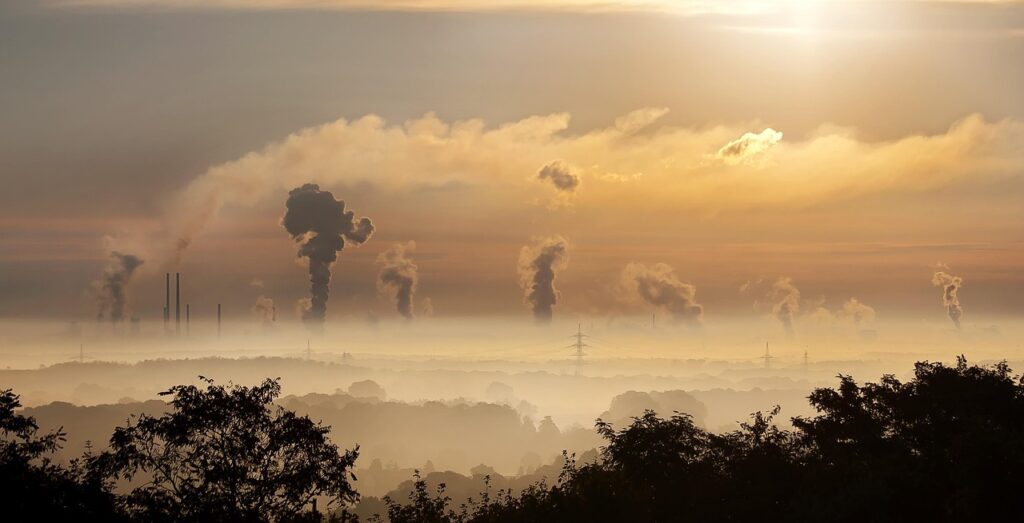As a part of the European Union, Bulgaria and all other Member States are legally required to fully enforce EU environmental policy and relevant directives. This would not only ensure human well-being and a healthy environment but would also prevent the loss of 55 billion euros in health costs and direct costs to the environment per year from the EU economy. Therefore, if the implementation of high EU standards and full alignment with the EU acquis lacks, the Commission has the power to take legal measures. However, to prevent reaching this stage, an Environmental Implementation Review (EIR) is provided to guide the countries through the process. According to the latest EIR from 2022 on Bulgaria, the country still needs to improve its air quality, guarantee proper treatment and collection of wastewater and enforce nature protection laws (Environmental Implementation Review, n.d.).
Implementing EU Environmental Policies
After its accession to the European Union in 2007, Bulgaria needed to change or replace its existing laws to align with EU requirements. Bulgaria, as the Member State introduced new criteria, processes and conditions regarding the production and treatment of waste with the aim of creating a regulation system for better waste recycling and environmental protection. As a result, in 2012 the country adopted a new Waste Management Act and “polluter pays” principle which transposed the EU Waste Framework Directive into the Bulgarian legislation (Kallay, 2013, p. 5). As recorded by Eurostat, in 2007 the municipal recycling rate was as low as 20.6, fluctuating over the years and reaching its peak in 2020 at 30.5, however, steadily declining since then (Recycling rate of municipal waste, 2025).
In 2014 the Bulgarian government passed the Climate Change Mitigation Act, which was recently amended, as this law incorporated both international and EU commitments into national law, thus, creating a framework for the country’s climate action efforts. As a result, the law has proven to be efficiently implemented because the CO2 emissions which amounted to 63 million tons in 2005 before Bulgaria’s accession, have decreased by 27.4% in 2023. Regarding renewable energy, the country surpassed its legally required target of 16% for 2020, however, it did not make progress towards phasing out coal by 2023 (Yougova, 2024, p. 2).
In addition, in 2015 the country made a political promise to adopt the UN Sustainable Development Goals and has been collaborating with other EU Member States, the United Nations and other actors to meet the 2030 Agenda for Sustainable Development (Kandilarov, 2021, p. 3). Some of the goals refer to the promotion of water management, sanitation and sustainable energy for all, action to combat climate change, as well as many more (Transforming our world, n.d.).
What’s more, based on the principle of subsidiarity, the EU allows the Member States to choose the methods to comply with limit values on air quality established by Directive 2008/50/EC. However, Bulgaria was reported to have systematically failed to meet the air quality standards and as a result, in 2020 the Commission decided to refer the country to the EU Court of Justice (European Commission – Press release, 2020, p. 1).
Furthermore, the country has adopted the Water Framework Directive, to align with EU directives and ensure better water quality, river basin management, wastewater treatment and enforcement. However, according to the Water Information System for Europe (WISE), nowadays only 30% of the wastewater is treated in accordance with the requirements, which is below the EU average of 76% (Country profiles on urban wastewater treatment, n.d.).
Opportunities and Challenges
On the one hand, Bulgaria’s membership in the EU goes along with significant opportunities for the improvement of its environmental policies thanks to the financial support granted by the EU. For instance, the Just Transition Fund (JTF) will provide 1.2 billion for the creation of new jobs and working activities in the Bulgarian towns of Stara Zagora, Kyustendil and Pernik. These three towns are the most affected by the socio-economic risks related to phasing out coal and reducing CO2 emissions and will be supported so as to help the country reach the EU 2023 climate and energy targets and a climate-neutral economy by 2050 (EU supports just climate transition in Bulgaria, 2023). Moreover, the Recovery and Resilience Plan for the country will provide financial support to make it more environmentally sustainable, adaptive and better equipped for the green and digital transition (Bulgaria’s recovery and resilience plan, 2022).
On the other hand, there are challenges regarding environmental policies accompanying the accession of the country to the EU. Non-compliance has been identified as the main one because Bulgaria has not managed to implement effectively some EU environmental action plans or directives. For example, legal rules on fairer waste calculation were adopted many years ago in Buglaria, however, they have still not been applied in reality. As a result, the EIR for 2022 outlined that the country needs to enhance its administrative capabilities for implementation and enforcement and adapt to a zero-tolerance approach for non-compliance (Environmental Implementation Review, n.d., p. 27).
To conclude, after its accession to the European Union, Bulgaria has enhanced its environmental performance by strengthening its legislation and policy framework for environmental protection as required by the EU. However, the effective implementation of environmental legislation at the sub-national level remains slow and poses a challenge to the country (Kandilarov, 2021, p. 2). Even though the financial support from the EU funds has played a crucial role in the process of taking measures and complying with requirements, some areas have remained insufficiently covered. For this reason, the European Commission has referred Bulgaria to the Court of Justice more than once, after firstly preparing a report for better implementation.
Bibliography
Bulgaria’s recovery and resilience plan. (2022). Retrieved from European Commission: https://commission.europa.eu/business-economy-euro/economic-recovery/recovery-and-resilience-facility/country-pages/bulgarias-recovery-and-resilience-plan_en
Eurostat. (2025). Recycling rate of municipal waste. Retrieved from: https://ec.europa.eu/eurostat/databrowser/view/sdg_11_60/default/table?lang=en
European Commission (n.d.). Environmental Implementation Review. Retrieved from: https://environment.ec.europa.eu/law-and-governance/environmental-implementation-review_en
European Commission (2023). EU supports just climate transition in Bulgaria. Retrieved from: https://ec.europa.eu/regional_policy/whats-new/newsroom/21-12-2023-eu-supports-just-climate-transition-in-bulgaria-with-a-budget-of-eur1-2-billion_en
European Commission. (2020). European Commission – Press release. Retrieved from https://ec.europa.eu/commission/presscorner/api/files/document/print/it/ip_20_2150/IP_20_2150_EN.pdf
Kallay, T. (2013). Municipal waste management in Bulgaria. Regional Environmental Center. Retrieved from file:///C:/Users/USER/Downloads/Bulgaria_MSW.pdf
Kandilarov, E. (2021). Bulgarian Green Development Policy and Action. China-CEE Institute. Retrieved from https://china-cee.eu/wp-content/uploads/2021/07/2021s07_Bulgaria.pdf
United Nations. (n.d.). Transforming our world. Retrieved from: https://sdgs.un.org/2030agenda
Yougova, D. (2024). Bulgaria’s climate action strategy. European Parliamentary Research Service (EPRS). Retrieved from https://www.europarl.europa.eu/RegData/etudes/BRIE/2024/767172/EPRS_BRI(2024)767172_EN.pdf
WISE. (n.d.).Country profiles on urban wastewater treatment. Retrieved from: https://water.europa.eu/freshwater/countries/uwwt/bulgaria








